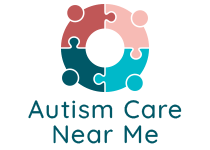Anxiety is a common issue for many people, regardless of whether or not they have autism spectrum disorder (ASD). However, children with ASD may experience anxiety differently than those without. It is important to understand the signs and symptoms of anxiety in order to better help your child manage it. Whether they’re experiencing social anxiety or anxiety in general, there are resources and treatments available to help, like an applied behavioral analysis program.
Do Children with Autism Spectrum Disorder Experience Anxiety?
Yes, children with autism spectrum disorder do experience anxiety, just like any other child. However, it may manifest differently due to the unique needs of individuals on the spectrum. For example, some may become overwhelmed by sensory stimulation or social situations more than others. It is important to pay attention to how your child responds in different environments and activities so that you can recognize when they are anxious or overwhelmed.
Anxiety vs. Social Anxiety
Anxiety is a general feeling of fear or worry about a situation or event. Social anxiety is a specific type of anxiety that relates to social situations such as meeting new people, speaking in public, or attending parties. Children with autism spectrum disorder may experience both types of anxiety, but the way they express it can be different from neurotypical children due to their unique needs and sensitivities.
A social skills group can be a great way to help children with autism spectrum disorder manage social anxiety. These groups provide a safe space for children to practice interacting with others and increase their comfort level in social situations.
Signs Your Child with Autism Is Struggling With Anxiety
It can sometimes be difficult to recognize when your child is struggling with anxiety because they may not express it through traditional methods such as crying or becoming angry and frustrated. Some signs that your child may be experiencing anxiety include:
- Withdrawing from social situations
- Avoiding eye contact
- Having difficulty sleeping or staying asleep at night
- Repetitive behaviors such as rocking back and forth or hand flapping
- Physical signs such as headaches or stomachaches
If you notice any of these behaviors in your child, it is important to take action immediately so that you can help your child manage their anxiety before it becomes overwhelming.
Help for Anxiety in Children with Autism Spectrum Disorder
There are many family resources for autism available for parents who want to help their children manage their anxiety related to autism spectrum disorder. A great place to start is by talking openly and honestly about how your child feels so that they know they are not alone in this experience. ABA therapy is another great resource for anxiety, as it provides a space where children can learn coping skills and practice social skills. Lastly, finding local support groups or online resources can be helpful for both you and your child.
Find Treatment near You Today
No matter what type of treatment plan you decide upon for your child’s anxieties associated with ASD, remember that there will likely still be times when they feel anxious or overwhelmed. However, having proper support systems in place will make those times easier for them to handle. If you believe that your child might benefit from outside assistance from mental health professionals specializing in ASD, reach out to a treatment center near you today. Helping your child cope with their anxieties related to ASD now will set them up for success later on down the road. At the same time, support groups and other resources for parents can make a difference as you navigate treatment for your child. There’s help—all it takes is a phone call.







